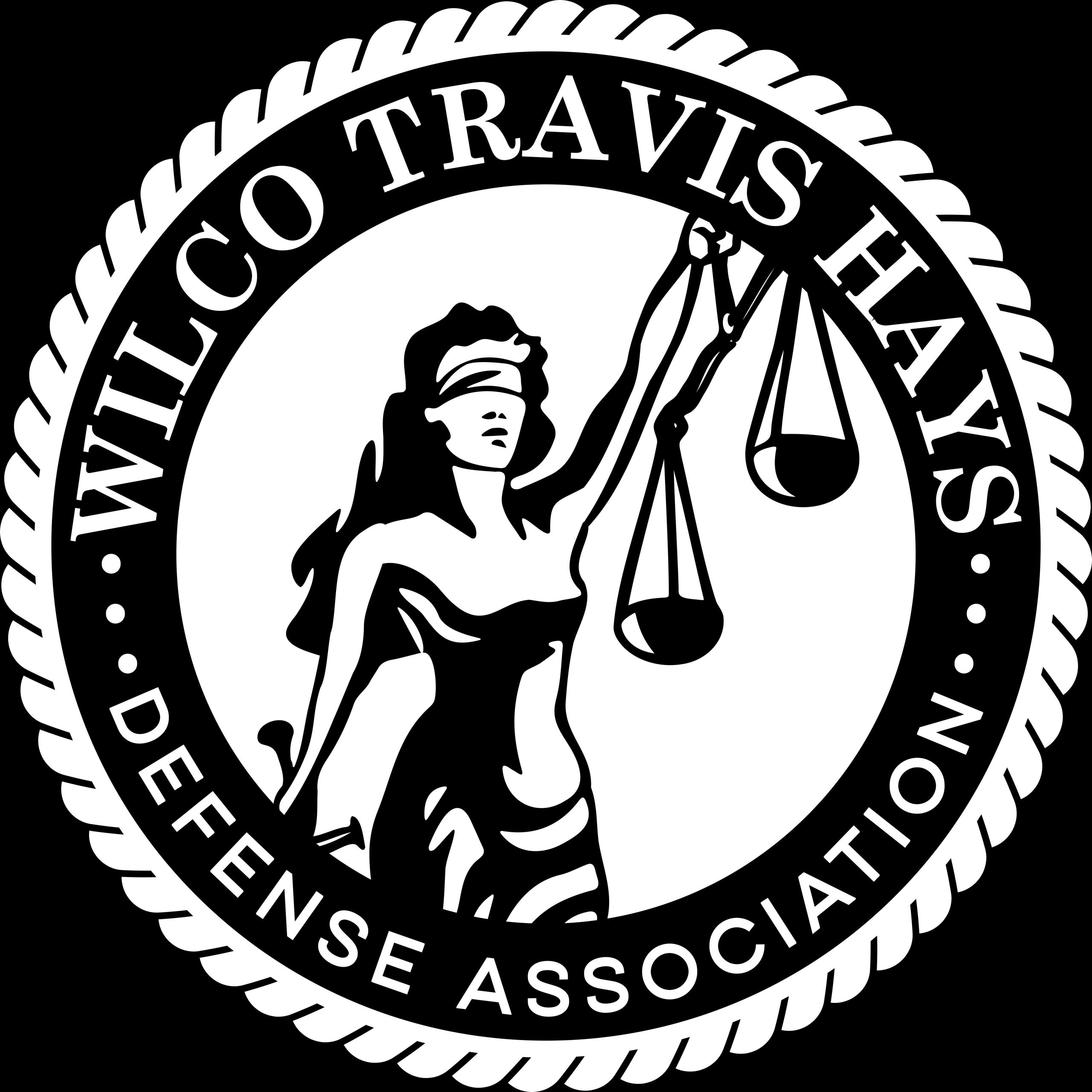What are the collateral consequences of a family violence conviction?
Overall, when one considers collateral consequences, the government treats the assault of a family member as a more serious crime than the assault of a stranger. It isn’t uncommon for Travis County judges to issue emergency protective orders (EPOs) in family violence cases that forbid defendants from returning to their homes and sometimes even prevents them from seeing their children. If children were present at the time of the incident then Texas CPS (Child Protective Services) may also investigate.
In divorce court, a family violence conviction can be used to deny child custody, limit visitation rights, and eliminate the minimum marriage term required to qualify for spousal support. A family violence conviction can also cause you to permanently lose the right to possess a firearm for any reason. If you are in the military, you may be discharged; if you work in law enforcement, you may be reassigned or fired. See US Code Title 18 Section 922(g).
A family violence conviction could cost you a professional license or, if you are a skilled tradesman, make it impossible for you to be bonded. It will appear in your criminal record and will show up in pre-employment and pre-leasing background checks.
Non-citizens convicted of family violence may be denied a green card or deported and denied re-entry.
If you are convicted of even the lowest level of family violence assault, any future misdemeanor family violence or stalking charges may be prosecuted and punished as third degree felonies and you are permanently disqualified for an order of non-disclosure if you successfully complete deferred adjudication probation for any type of offense in the future.
Can I drop the charges?
In Texas, the complainant or alleged victim of a criminal offense does not have the right to drop the charges. Only the prosecutor has that power.
When alleged victims of family violence seek to drop charges in Travis County, prosecutors routinely require them to jump through various hoops, even if law enforcement’s version of events is flat-out wrong and family violence didn’t actually occur. Even when an alleged victim is willing to jump through all the usual hoops, a prosecutor may still refuse to drop the charges. Depending on the circumstances, a prosecutor may also have the power to file charges against the alleged victim for perjury or making a false report to the police.
It is not uncommon for an alleged victim who wants the charges dropped to ask the defendant’s criminal defense attorney for assistance. I have worked with many alleged victims in these circumstances to prepare an “Affidavit of Non-Prosecution,” which expresses his or her wish that the case be dismissed and, when appropriate, corrects the record regarding allegations that are inaccurate or untrue. Such affidavit can be very powerful tools and have frequently helped me to get cases thrown out.
If you are the alleged victim, you should be aware that a criminal defense attorney who is representing the defendant cannot legally represent your interests (even if you were the one who actually hired him or her). His or her duty is to represent the defendant’s interests, which very well may conflict with yours. An ethical defense attorney will warn you if he or she determines that such a conflict exists but cannot give you legal advice. This is especially important to understand if you want to contradict a previous statement, which might result in criminal liability for perjury or filing a false report.
As a result, if you want to recant or change your story in a family violence case, you should consider hiring your own private lawyer with experience in the Travis County criminal justice system to advise you regarding the possible consequences and, if you choose to persist, to prepare an Affidavit of Non-Prosecution that accomplishes your goals while minimizing the risk of being charged with a crime.
What is the role of victim services counselors?
Victim services counselors are a special type of social worker. Their purpose is to help crime victims recover and protect their rights. They offer many different types of assistance, such as helping an alleged victim apply for compensation from the Crime Victim’s Compensation Program, helping an alleged victim get over a fear of testifying, and assisting with travel arrangements when the alleged victim must appear in court.
The Austin Police Department, Travis County Sheriff’s Office, Travis County District Attorney’s Office, and Travis County Attorney’s Office all have their own victim services counselors.
Unfortunately, it is not uncommon for alleged victims to report back to me that the victim services counselors with the Travis County Attorney’s Office treated them badly when they were seeking a dismissal or reduction of charges rather than a conviction. The counselors’ behavior has been described as manipulative, threatening, and even dishonest. I have found this to be especially likely to occur when the alleged victim disputes the version of events reported by the police.
Alleged victims have no legal obligation to cooperate with or even talk to a victim services counselor. If you do talk to them, keep in mind that they are supposed to be helping you. Tell them if you want a particular outcome and cut them off if they are unhelpful.
When a victim-witness coordinator, prosecutor, policeman, detective, or any agent of the State advises the alleged victim to not speak with the defense attorney, that is sometimes known as a Gregory violation. If this happens to you, notify the defense attorney about what was said, when, and by whom. See also: United States v. Skilling, 554 F.3d 529, 567 (5th Cir. 2009)
Do I have to testify at trial?
Defendants: When you are charged with a criminal offense, you have an absolute right under both the U.S. and Texas Constitutions to choose whether or not to testify.
Alleged Victims: Unlike most other types of criminal cases, when you are the alleged victim in a domestic assault case that the government filed against your husband or wife, traditional spousal immunity or spousal privilege does not apply, which means that the government can force you to testify against your spouse at trial.
Sometimes however, the alleged victim would not be able to testify honestly about all the details surrounding the incident without confessing to criminal behavior of their own. This is actually quite common in cases involving mutual combat. In this situation the alleged victim could obey the subpoena to appear in court but still refuse to testify about the specific facts of the incident by asserting their right against self-incrimination guaranteed by the Fifth Amendment of the United States Constitution.
What does “bodily injury” mean in an assault case?
Many people understandably assume that the term “bodily injury” requires some sort of visible injury, like a cut, a bruise, or even a red mark, but the legal definition includes simple physical pain. As a result, you can be charged with Assault with “Bodily Injury,” which is a class A misdemeanor and a jailable offense, when you are accused of merely slapping someone or pulling his or her hair.
What is a “choking allegation” in a family violence case?
The government treats choking or suffocating a family member as a more serious offense than most other forms of assault that don’t involve a weapon. As a result, an accusation of choking allows the government to charge you with a 3rd degree felony on the first offense or a 2nd degree felony if you have any prior convictions for family violence.
The punishment range for a 3rd degree felony is 2 to 10 years in prison. The punishment range for a 2nd degree felony is 2 to 20 years. Either one can carry a fine of up to $10,000.
What is the penalty range for assault with family violence?
Depending on your prior criminal history and the specific facts alleged by the police, e.g., bodily injury, choking, deadly weapon, or other aggravating circumstances, an assault or aggravated assault with family violence case can be filed as a Class C misdemeanor on up to a 1st degree felony.
The range of possible outcomes at the low end of the spectrum includes deferred dispositions and fine-only convictions, the former of which may qualify for expunction. Higher level misdemeanors that result in convictions may involve probation or even time in the county jail. Depending on the defendant’s criminal history and the severity of the allegations, deferred prosecution is also a possibility and is a very desirable outcome in many cases because it results in a dismissal that is usually eligible for expunction.
Felony cases that result in a conviction may involve probation or time in the penitentiary and the most severe felony cases carry a maximum punishment range of life in prison.
What is wrong with Deferred Adjudication for family violence cases?
Deferred Adjudication is better than straight probation in most criminal cases because it is not a conviction and your criminal history can be partially sealed if an order of non-disclosure is granted after you successfully complete the probationary period. Non-disclosure also allows you to legally deny an arrest on employment applications.
Unfortunately, the non-disclosure law specifically excludes anyone ever convicted of or placed on deferred adjudication probation for a case involving family violence. In other words, entering into a plea bargain agreement for deferred adjudication will make you permanently ineligible for non-disclosure in the future, even for unrelated charges.
In addition, deferred adjudication is treated like a conviction for some purposes, such as federal immigration issues, concealed handgun licenses, and enhancement of future family violence charges. Thus, for family violence cases, deferred adjudication probation has many of the same consequences as straight probation.
That said, you should not automatically reject a plea bargain offer just because it includes the word “deferred.” There are pretrial diversion programs that are sometimes offered in certain Austin courts that are called Deferred Prosecution and Deferred Disposition. Successful completion of pretrial diversion usually results in a complete dismissal and makes it possible to obtain an Expunction. Expunction is even better than non-disclosure because it completely removes a case from your criminal history and causes all records of the arrest and prosecution to be deleted and destroyed.
What if the affirmative finding of family violence is waived?
A prosecutor may offer to waive the family violence finding in hopes of making a plea bargain offer seem like a better deal. Don’t fall for it.
Unlike a deadly weapon finding, almost all of the negative family violence consequences apply without regard to an affirmative finding. This is because most of the enhanced consequences are based on the actual relationship between the defendant and the alleged victim, not on the existence of any judicial finding.
Whether you are dealing with a family law crisis, an immigration deportation hearing, a real estate issue, facing a felony or misdemeanor conviction, or really anything in between, we have an attorney that is passionate and ready to take on your case. When hiring attorneys to work here, we make sure that they pick the area of law that they are most passionate and experienced to work in and limit them to just those areas. We also make sure that they exemplify our core values: excellent communication, compassionate care, and honorable treatment.
Unfortunately, attorney have a horrendous reputation with client satisfaction and for good reason. It may shock you to know that the number one reason attorneys get disbarred from practicing law is that they fail to adequately communicate with their clients. We aim to change that completely around and promise that you will never be left in the dark. With so much on the line, it is vital that you hire a passionate, knowledgeable, communicative, and caring attorney to actively fight for your rights. At AZ Law Firm, we are committed to doing just that.
We understand times are tough and that there probably hasn’t been a tougher time in your life. Although we could get away with charging exuberant amounts, we prefer not to as we are a law firm by the people, for the people. We do not want you to worry about whether you can afford to hire an attorney to protect and defend your rights. Call us and be surprised at the quality you receive compared to what other law firms will quote you!
Accordingly, the attorneys at AZ Law Firm will always provide you with a free initial consultation. During this initial consultation, one of our attorneys will evaluate your case, inform you of any legal options that may be available, and allow you to ask any questions that you may have. AZ Law Firm offers affordable rates for all our clients and will work with you on payment plans. Our firm accepts checks, debit cards, and most major credit cards to cover the costs of your legal representation.











